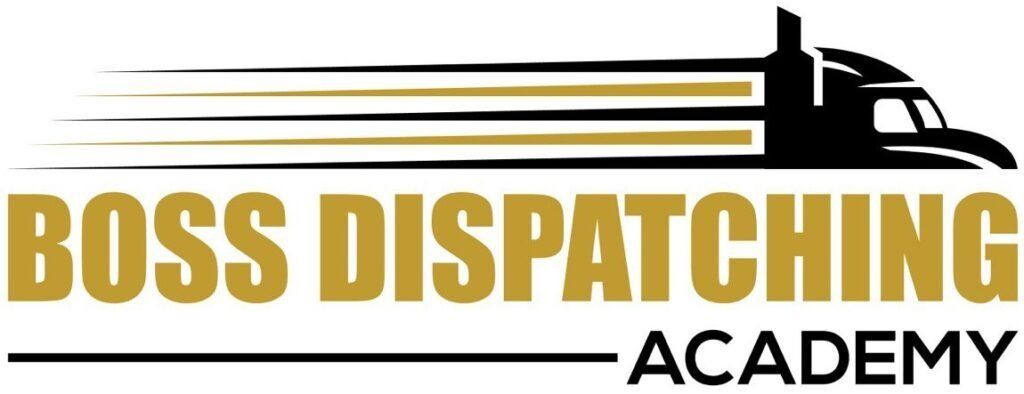How to Excel in the Industry?
In the bustling world of logistics, freight brokers play a crucial role in ensuring the seamless movement of goods. These professionals are the backbone of the transportation industry, responsible for connecting shippers and carriers, negotiating deals, and overseeing the transportation process. If you aim to become a proficient freight broker, here’s a guide to understanding the importance of honing your skills and receiving proper training.
What is Freight Brokerage Training?
Freight brokerage training is a comprehensive program designed to equip individuals with the knowledge and skills necessary to excel in the industry. These training programs cover a wide spectrum of essential topics, including:
Load Sourcing: Finding and matching available freight with suitable carriers.
Regulatory Compliance: Understanding and adhering to the legal and regulatory requirements governing freight brokerage.
Negotiation Skills: Learning effective negotiation techniques to secure favorable deals for both shippers and carriers.
Customer Service: Providing exceptional service to clients and maintaining strong relationships.
Financial Management: Managing finances, including profit margins and payment processing.
Technology Utilization: Leveraging modern tools and software for efficient operations.
The duration of these courses can vary, from a few weeks to several months, depending on the program’s depth and complexity.
Why is Dispatching Training Important?
Freight brokerage training is crucial for several compelling reasons:
Legal Compliance: The freight brokerage industry is heavily regulated. Proper training ensures you understand and comply with legal requirements, including obtaining surety bonds and registering with the FMCSA, reducing the risk of legal issues.
Competence and Trust: Clients trust competent and knowledgeable brokers. Training instills confidence in your abilities and enhances your credibility in the eyes of shippers and carriers.
Efficiency: Training equips you with the skills to optimize operations, match loads effectively, and minimize delays, leading to improved efficiency and cost savings.
Customer Satisfaction: Satisfied clients are more likely to return and refer others. Training helps you provide exceptional service, leading to higher customer satisfaction levels.
Adaptation: The logistics industry continually evolves. Training keeps you updated on industry trends and technologies, allowing you to adapt to changes and stay competitive
Career Advancement: Mastery of skills opens doors to career advancement within the industry, potentially leading to leadership roles or entrepreneurship opportunities.
In conclusion, honing your skills and investing in freight brokerage training are pivotal steps in becoming a successful and respected freight broker. It ensures legal compliance, builds competence and trust, enhances efficiency, fosters customer satisfaction, facilitates adaptation to industry changes, and paves the way for long-term career growth in the vibrant world of logistics and transportation.
what is a freight broker agent?
Decoding the Mysteries of Freight Broker Agents
Now that you’ve dipped your toes into the intriguing world of freight brokerage, it’s time to tackle a question that often leaves people scratching their heads: What on earth is a freight broker agent? Don’t worry; it’s not a secret agent for cargo espionage. Instead, think of them as the unsung heroes of the freight brokerage world, with a dash of independent spirit and a sprinkle of humor.In conclusion, honing your skills and investing in freight brokerage training are pivotal steps in becoming a successful and respected freight broker. It ensures legal compliance, builds competence and trust, enhances efficiency, fosters customer satisfaction, facilitates adaptation to industry changes, and paves the way for long-term career growth in the vibrant world of logistics and transportation.
So, what exactly is a freight agent, you ask? Well, they’re like the Robin to the freight broker’s Batman, except they work under the same freight brokerage firm, usually by way of a nifty contract. This contract is like their golden ticket, granting them the superpower to broker freight while proudly flaunting the brokerage’s name and licensing requirements. It’s like having a backstage pass to the hottest concert in town but for the freight world.
Now, here’s the kicker: Freight agents are the freewheeling cowboys of the industry. They’re not punching a clock; they’re usually self-employed, independent contractors who thrive on commissions alone. That’s right, no fixed salary for these folks. They’re in it to win it, and they typically rake in a sweet 50% to 80% of the freight brokerage profits for every load they shepherd.
But wait, there’s more! While the freight broker juggles things like carrier invoices, payments, shipper billing, and keeping the cash flow flowing, the freight agent is the charming face of the operation. They’re the ones out there schmoozing with shippers, convincing them that their freight is in the best hands possible. They’re the ultimate matchmakers, connecting shippers with the perfect carriers, all while flying the freight brokerage flag high.
Here’s the catch – being a freight agent isn’t your average 9-to-5 gig with an instruction manual. Nope, it’s more like being thrown into the deep end of the pool and told to swim. Most freight brokerage firms don’t spoon-feed their agents with on-the-job training. Instead, they expect these agents to be like freight-savvy MacGyvers, able to prospect shipper customers and broker their freight deals with the finesse of a seasoned pro.
So, there you have it – the enigmatic world of freight broker agents, where contracts are golden tickets, commissions rule the day, and a knack for matchmaking can take you to the top. It’s a wild ride, but for those with the spirit of adventure, it’s a journey worth embarking upon.






